Identity of electricities; first researches on electro-chemistry.
I have already once used the word 'discomfort' in reference to the occasional state of Faraday's mind when experimenting. It was to him a discomfort to reason upon data which admitted of doubt.
He hated what he called 'doubtful knowledge,' and ever tended either to transfer it into the region of undoubtful knowledge, or of certain and definite ignorance. Pretence of all kinds, whether in life or in philosophy, was hateful to him. He wished to know the reality of our nescience as well as of our science. 'Be one thing or the other,'
he seemed to say to an unproved hypothesis; 'come out as a solid truth, or disappear as a convicted lie.' After making the great discovery which I have attempted to describe, a doubt seemed to beset him as regards the identity of electricities. 'Is it right,' he seemed to ask, 'to call this agency which I have discovered electricity at all?
Are there perfectly conclusive grounds for believing that the electricity of the machine, the pile, the gymnotus and torpedo, magneto-electricity and thermo-electricity, are merely different manifestations of one and the same agent?' To answer this question to his own satisfaction he formally reviewed the knowledge of that day.
He added to it new experiments of his own, and finally decided in favour of the 'Identity of Electricities.' His paper upon this subject was read before the Royal Society on January 10 and 17, 1833.
After he had proved to his own satisfaction the identity of electricities, he tried to compare them quantitatively together.
The terms quantity and intensity, which Faraday constantly used, need a word of explanation here. He might charge a single Leyden jar by twenty turns of his machine, or he might charge a battery of ten jars by the same number of turns. The quantity in both cases would be sensibly the same, but the intensity of the single jar would be the greatest, for here the electricity would be less diffused.
Faraday first satisfied himself that the needle of his galvanometer was caused to swing through the same arc by the same quantity of machine electricity, whether it was condensed in a small battery or diffused over a large one. Thus the electricity developed by thirty turns of his machine produced, under very variable conditions of battery surface, the same deflection. Hence he inferred the possibility of comparing, as regards quantity, electricities which differ greatly from each other in intensity. His object now is to compare frictional with voltaic electricity. Moistening bibulous paper with the iodide of potassium--a favourite test of his--and subjecting it to the action of machine electricity, he decomposed the iodide, and formed a brown spot where the iodine was liberated.
Then he immersed two wires, one of zinc, the other of platinum, each 1/13th of an inch in diameter, to a depth of 5/8ths of an inch in acidulated water during eight beats of his watch, or 3/20ths of a second; and found that the needle of his galvanometer swung through the same arc, and coloured his moistened paper to the same extent, as thirty turns of his large electrical machine. Twenty-eight turns of the machine produced an effect distinctly less than that produced by his two wires. Now, the quantity of water decomposed by the wires in this experiment totally eluded observation; it was immeasurably small; and still that amount of decomposition involved the development of a quantity of electric force which, if applied in a proper form, would kill a rat, and no man would like to bear it.
In his subsequent researches 'On the absolute Quantity of Electricity associated with the Particles or Atoms of matter,' he endeavours to give an idea of the amount of electrical force involved in the decomposition of a single grain of water. He is almost afraid to mention it, for he estimates it at 800,000 discharges of his large Leyden battery. This, if concentrated in a single discharge, would be equal to a very great flash of lightning; while the chemical action of a single grain of water on four grains of zinc would yield electricity equal in quantity to a powerful thunderstorm. Thus his mind rises from the minute to the vast, expanding involuntarily from the smallest laboratory fact till it embraces the largest and grandest natural phenomena.
In reality, however, he is at this time only clearing his way, and he continues laboriously to clear it for some time afterwards.
He is digging the shaft, guided by that instinct towards the mineral lode which was to him a rod of divination. 'Er riecht die Wahrheit,' said the lamented Kohlrausch, an eminent German, once in my hearing:--'He smells the truth.' His eyes are now steadily fixed on this wonderful voltaic current, and he must learn more of its mode of transmission.
On May 23, 1833, he read a paper before the Royal Society 'On a new Law of Electric Conduction.' He found that, though the current passed through water, it did not pass through ice:--why not, since they are one and the same substance? Some years subsequently he answered this question by saying that the liquid condition enables the molecule of water to turn round so as to place itself in the proper line of polarization, while the rigidity of the solid condition prevents this arrangement. This polar arrangement must precede decomposition, and decomposition is an accompaniment of conduction. He then passed on to other substances; to oxides and chlorides, and iodides, and salts, and sulphurets, and found them all insulators when solid, and conductors when fused. In all cases, moreover, except one--and this exception he thought might be apparent only--he found the passage of the current across the fused compound to be accompanied by its decomposition. Is then the act of decomposition essential to the act of conduction in these bodies?












